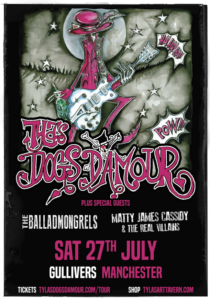

- 08
- 11
- 2023

- 07.30
- pm
Now Wave presents McKinley Dixon
- £12.00
- Buy Tickets
McKinley Dixon spent his childhood caught between two worlds. Born in Annapolis, Maryland in 1995, his formative experiences were defined by shuttling back and forth between his hometown and Jamaica, Queens. It was within the concrete jungle of New York that he found a spiritual home; there, the faces looked like his own in a way that just wasn’t true of Maryland. “It gave me kind of this sense of longing that really jump-started my thinking about escapism through music,” he says.
This sense of yearning for something more, of creation as means to transcend the facts of everyday reality, is central to Dixon’s music. Who is the greatest rapper of all time, in his mind? Toni Morrison, the first African-American woman to win the Nobel Prize for literature. Her novels dealt with American history and its entanglement with the Black experience, locating eruptions of longing and escape with the beautiful sweep and precision of her prose – and it’s exactly this that Dixon himself is trying to channel in his music.
Musically, he was raised on a diet of “artists whose first name was Mary”, including Mary J. Blige and gospel duo Mary Mary. He also developed a taste for Outkast who pushed the parameters of hip-hop, while growing curious about the theatrical rock of My Chemical Romance and Panic! At The Disco that his Maryland friends introduced him to. Eventually, he channeled these competing influences into a debut EP he released in 2013 while attending college in Richmond, Virginia.
With time, his music became his primary means of self-expression, whether discussing Blackness or his own relationship with healing. Across his subsequent releases—Who Taught You to Hate Yourself? (2016) and The Importance of Self Belief (2018), his style evolved, and his confidence grew, especially when it came to live instrumentation. His 2021 debut album For My Mama and Anyone Who Look Like Her was a game changer, reckoning with themes of grief and heartache which proved that Dixon is more than a musician alone, but rather an artist capable of achievements on a greater poetic and literary scale.

